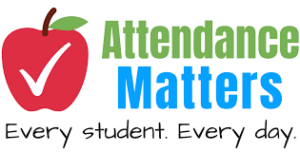February 28th, 2022
Reading is a fundamental skill for all students as they strive to achieve their full potential. In the Waterloo Region District School Board (WRDSB), supporting students in learning to read is a core focus, and for those students who may face challenges, we are committed to supporting their individual learning needs.
This year, in anticipation of the Ontario Human Rights Commission’s (OHRC) Report from the Right to Read Inquiry, the WRDSB continues to review current literacy practices and renew our commitment to ensuring all students are reading by the end of their primary years.
The WRDSB supports all students’ reading needs including students with a learning disability. To ensure this WRDSB uses a series of supports and interventions that are provided based on a student’s learning needs. Information is available on our website, which outlines the levels, and approaches used to support all students, including those with a learning disability.
Depending on the identified level, this can include evidence-based, direct instruction interventions such as Lexia and the EmpowerTM Reading Program. WRDSB educators have access to a selection of resources to support the implementation of these strategies, and to help answer any questions they may have about how they can best support students with learning disabilities.
The use of technology and assistive programs such as Lexia are essential accommodations for students with learning disabilities in the areas of reading and written expression. Specialized training is provided so that students and staff are equipped to use computer programs and devices effectively.
In an effort to better ensure consistency and access to assistive technology, the WRDSB supports this work centrally. Dedicated WRDSB staff, rather than third-party contractors, provide direct support for students and staff with the implementation of assistive technologies and devices.
We know we need to do better to support every learner with reading. Indigenous students, African, Caribbean and Black (ACBi) students, racialized, multilingual learners, non-neurotypical students, those with disabilities and students from low-socioeconomic status (SES) households are the most impacted by challenges related to reading skill development. We remain focused on and committed to improving the outcomes for all WRDSB students – every student should have the chance to reach their full potential while learning in our schools.
The Right to Read Inquiry Report
On February 28, 2022, the Ontario Human Rights Commission (OHRC) released its Right to Read inquiry report on human rights issues affecting students with reading disabilities, such as dyslexia. Watch the recorded live stream of the Right to Read Inquiry Report Release.
From the OHRC:
The OHRC launched its Right to Read public inquiry in October 2019, concerned that Ontario’s public education system was failing to meet the needs of students with reading disabilities. One of the inquiry’s goals was to find out if these students had meaningful access to education as required by the Ontario Human Rights Code. The comprehensive Right to Read report will include detailed findings and recommendations for the Ministry of Education, school boards and faculties of education on curriculum and instruction, early screening, reading interventions, accommodation, professional assessments and systemic issues.

 Hot Lunches
Hot Lunches Student Transportation Services of Waterloo Region
Student Transportation Services of Waterloo Region